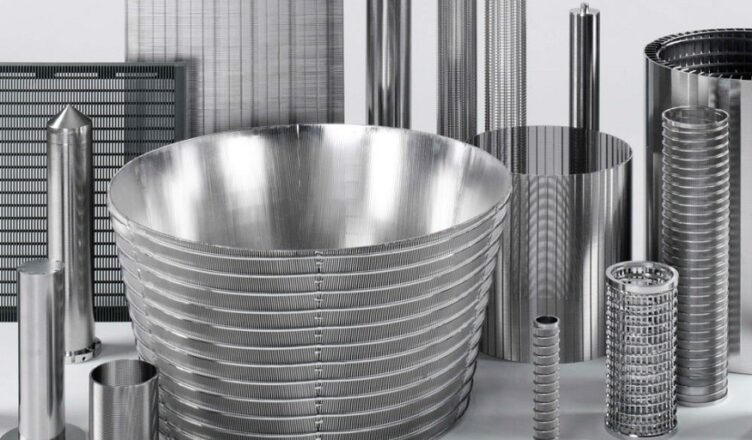Wedge wire is a versatile and highly efficient screening medium used in various industries, including mining, water treatment, food processing, and pulp and paper. It is made from stainless-steel wires that are shaped into V-shaped profiles and welded together to form a continuous slot screen. This unique design allows for precise control of the slot size, ensuring optimal filtration or separation of solids from liquids.
The wedge wire’s durability and strength make it an ideal choice for applications where high-pressure or heavy loads are involved. Additionally, its corrosion resistance properties enable it to withstand harsh environments without compromising its performance. With its excellent flow rates and superior open area characteristics, wedge wire screens provide enhanced efficiency in sieving or dewatering processes compared to traditional woven wire mesh screens.
History: Origins and development of Wedge Wire
Wedge wire is an innovative filtration technology that has revolutionized various industries, including water treatment, oil and gas, food and beverage, and mining. The origins of wedge wire can be traced back to the early 20th century, when it was first developed as a solution for efficient separation of solids from liquids. Over time, this technology has evolved and undergone significant development to meet the growing demands of industrial processes.
The development of wedge wire can be attributed to advancements in manufacturing techniques and materials. Initially, stainless steel was the primary material used for wedge wire screens due to its durability and resistance to corrosion. However, with the advent of new alloys and metal fabrication methods, manufacturers have been able to enhance the performance characteristics of wedge wire screens.
Today’s wedge wire screens are designed with precise slot openings that enable optimal filtration by efficiently trapping solid particles while allowing liquids or gases to pass through. This technology is highly versatile and can be customized according to specific application requirements, ensuring reliable filtration solutions across various industries. With ongoing research and development efforts focused on improving efficiency and durability, the future of wedge wire looks promising in meeting evolving filtration challenges.
Structure: Design and construction of Wedge Wire
Wedge wire has become a popular choice for filtration applications due to its superior performance and durability. In the design and construction of wedge wire, careful consideration is given to the shape and size of the wires, as well as the gap between them. This ensures that the filtration process is optimized, allowing for efficient separation of solids from liquids or gases.
The design of wedge wire involves selecting the appropriate wire profile to achieve specific filtration requirements. The most common profiles are V-shaped wires that are welded onto support rods. These profiles provide a large open area for fluid flow while maintaining strength and stability.
During construction, precision welding techniques are employed to ensure a strong bond between the wires and support rods. This results in a robust structure that can withstand high pressures and temperatures without compromising its filtration efficiency.
Overall, the design and construction of wedge wire play a crucial role in ensuring optimal filtration performance. By carefully considering factors such as wire profile, gap size, and welding techniques, manufacturers can produce high-quality wedge wire products that meet diverse industrial needs.
Applications: Various uses and industries that utilize Wedge Wire
Wedge Wire is a type of filtration media that is widely used in various industries for its ability to ensure optimal filtration. One of the main applications of Wedge Wire is in the water treatment industry, where it is commonly used for filtering water and removing particles and impurities. This can be seen in municipal water treatment plants, industrial facilities, and even residential filtration systems.
Another industry that extensively utilizes Wedge Wire is the oil and gas sector. In this industry, it plays a crucial role in separating solids from liquids during the extraction and refining processes. The precise design of Wedge Wire allows for efficient separation of contaminants such as sand, sediment, and other solid particles from crude oil or natural gas. This helps maintain the quality of the product while also preventing damage to equipment down the line.

